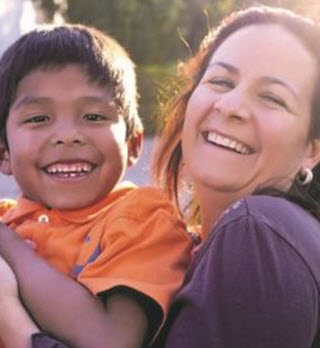UnitedHealthcare has a dedicated clinical model for children in foster care

Our clinical model is anchored in the principles of trauma-informed care and coordination:
- Includes a dedicated care management team of clinical expertswho specialize in outreach to foster care members and an integrated system of medical and behavioral health services designed to address the whole-person needs of these members
- Implements telehealth services and pharmacy reviews to support the particular access and clinical needs of foster care youth and their families
Improving the health and well-being of children and youth impacted by the foster care system, especially those with complex care needs
Children in foster care face some of the most complex care challenges in the health care system. Putting greater emphasis on proactive, coordinated and integrated care that addresses not just symptoms, but also the social and environmental factors related to a child’s well-being, can help reverse this trend.
UnitedHealthcare and the Foster Care Population

Supporting families who care for foster children
UnitedHealthcare collaborates with a diverse array of community decision-makers and influencers to better understand the barriers to better health. This “on-the-ground” and localized approach establishes a pattern of trust and partnership while maximizing resources within the community and using data to efficiently address any existing gaps.

- In 2019, UnitedHealthcare Community & State served 55,000 foster children across 12 markets, all part of integrated plans.
- Partnership with the National Foster Parent Association provides training about the foster care system and how to best assist foster parents.
- UnitedHealthcare has a dedicated clinical model for children in foster care anchored in the principles of trauma- informed care and coordination.
- Online continuing education (CEU’s) specific to children in foster care is available.
- UnitedHealthcare offers unique products to serve children in foster care, including an app for transition aged youth to plan for adulthood and store confidential documents they will need as adults to access services.

